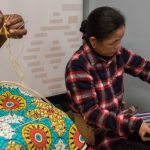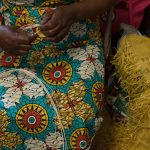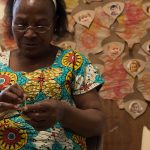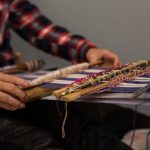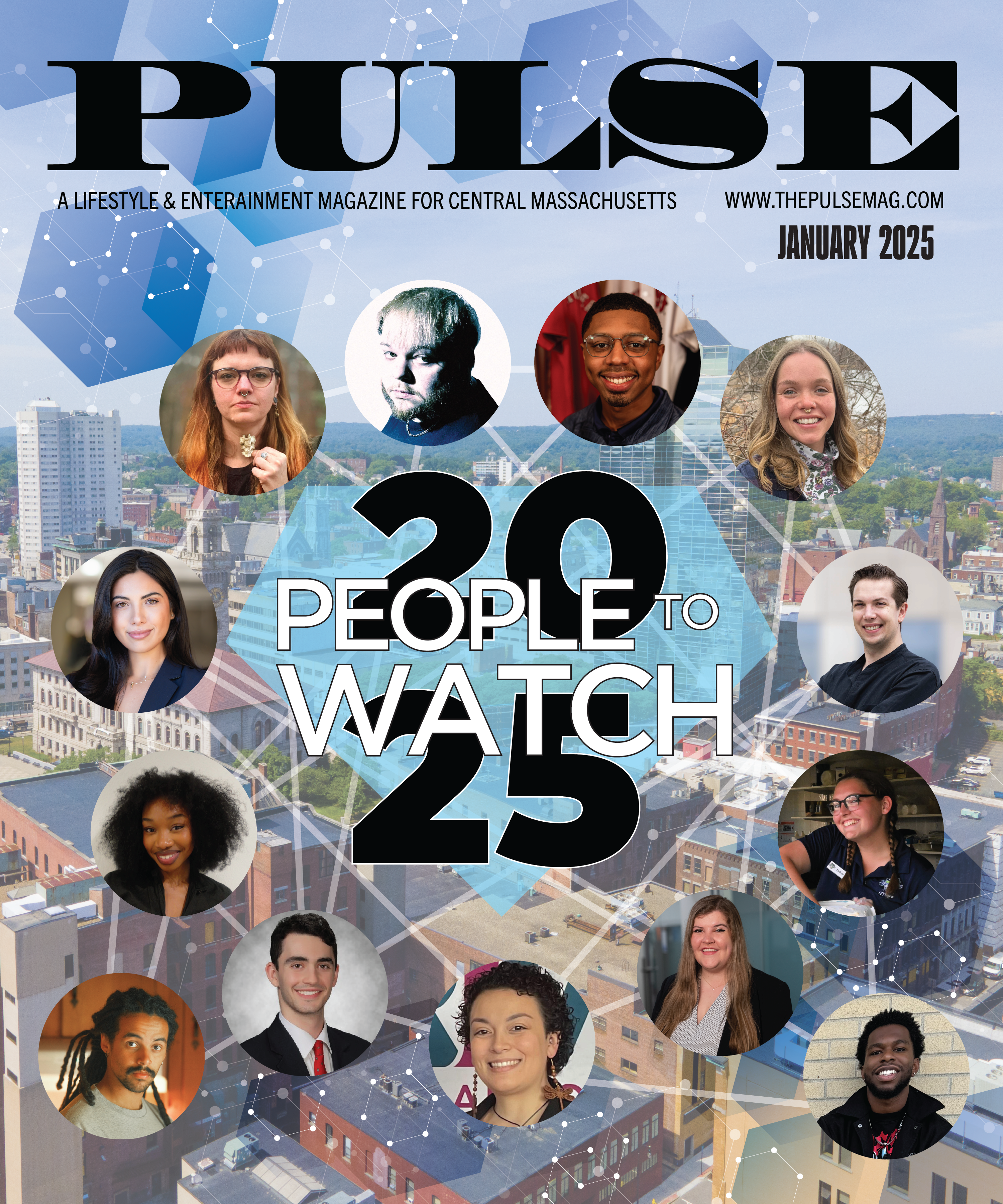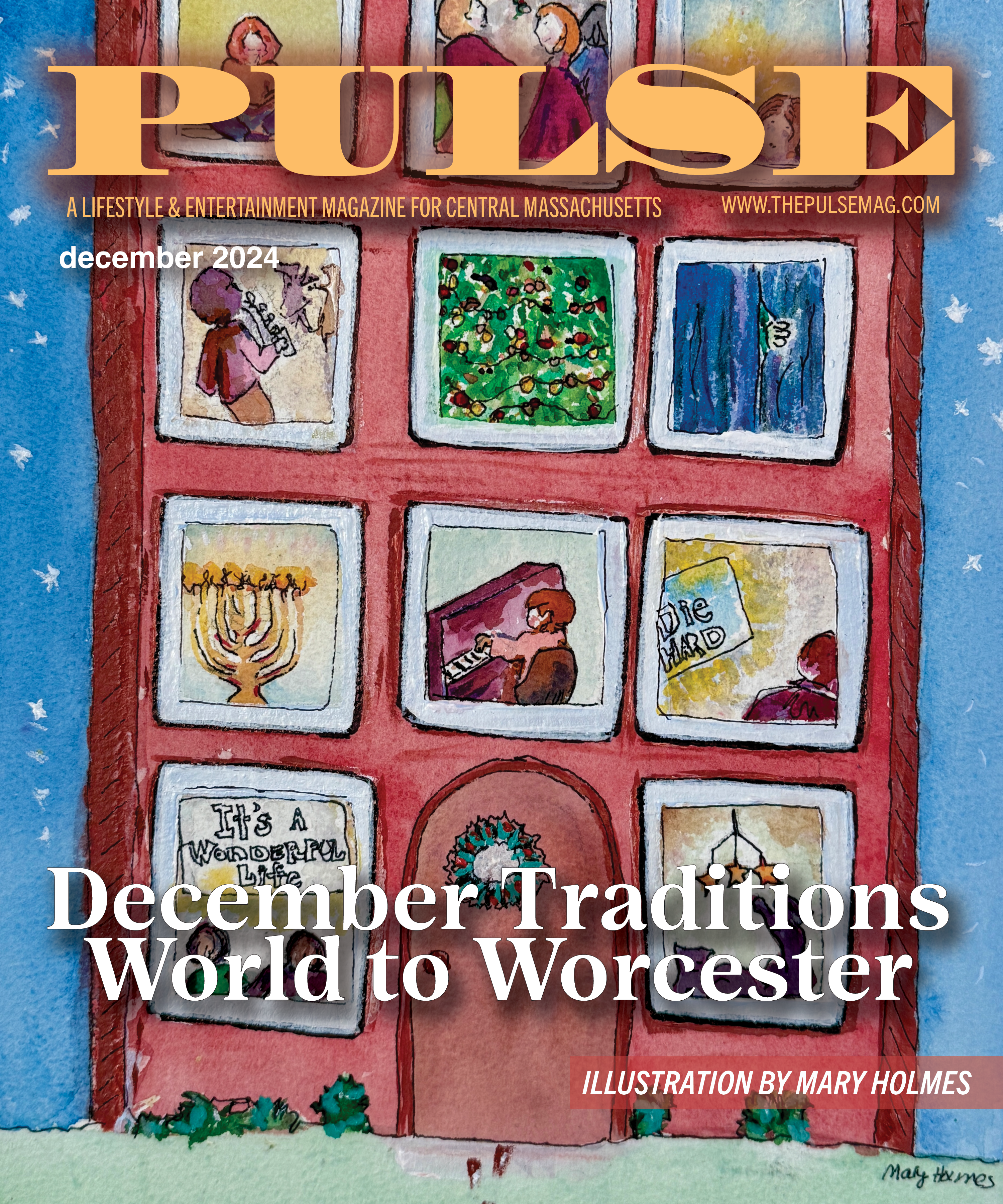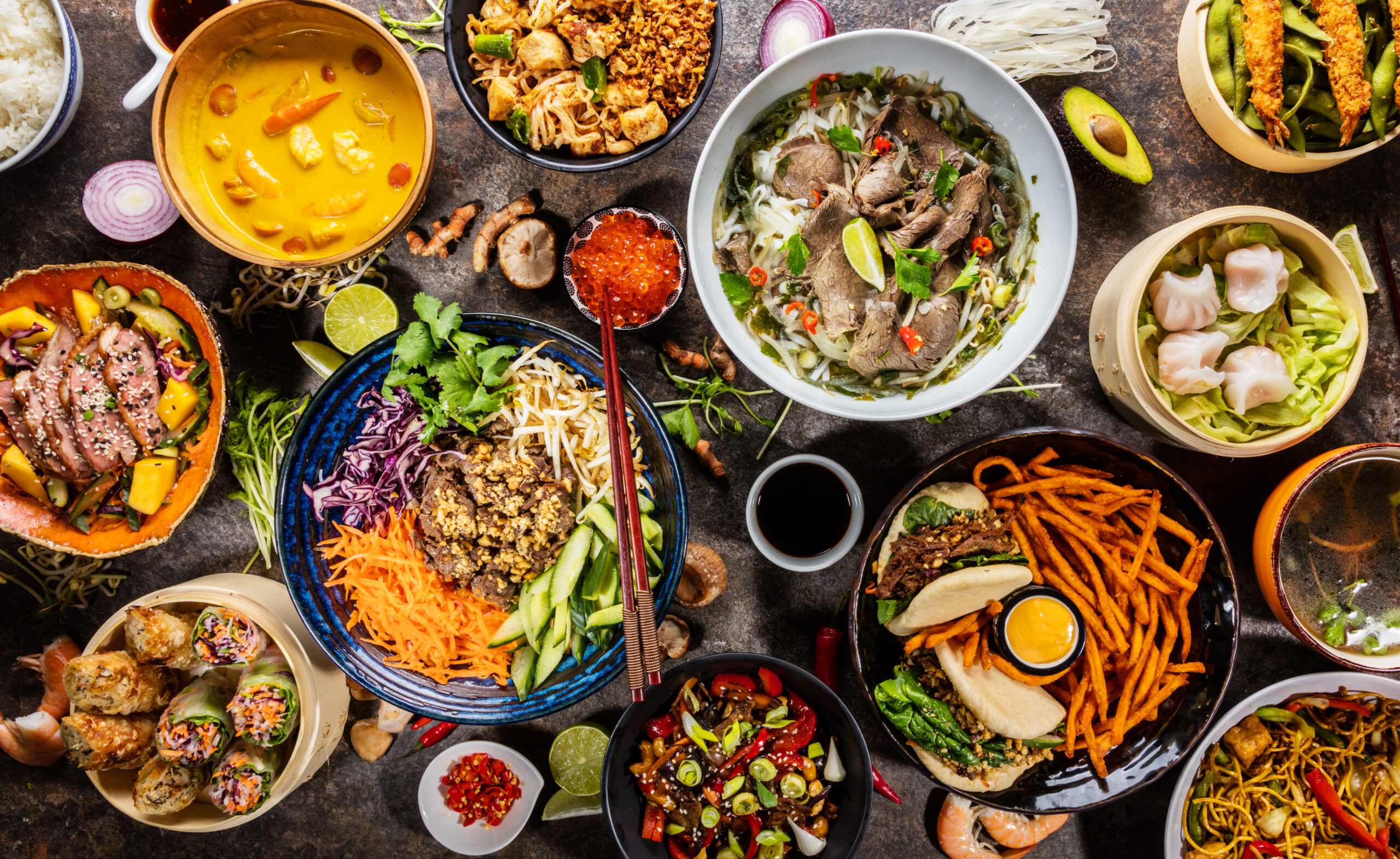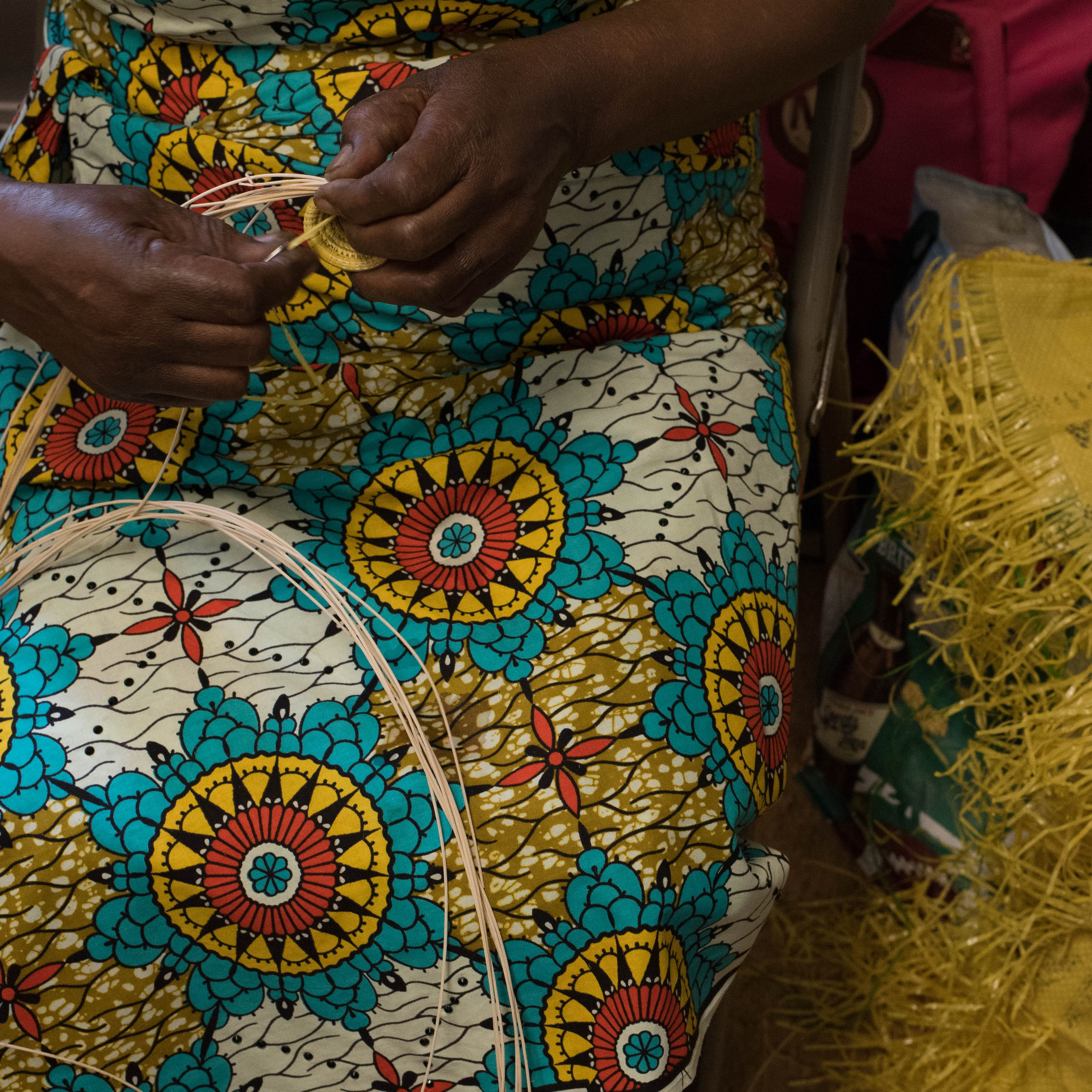
Photos and story by Brian Wheeler
It is a gloomy Saturday near the end of October, and shoppers at the Bethel Lutheran Church Harvest Fair take refuge from the outside drizzle, browsing various handmade items. One table draws the attention of the crowd with its array of colorful textiles. Two women stationed next to the table create complex crafts for an engaged audience.
Patrisiya Kayobera, a Rwandan refugee, deconstructs a large, yellow rice sack, using its material to weave a sturdy basket. Tu Meh, a Burmese refugee, fabricates a colorful scarf utilizing a backstrap loom. Both incorporate their homegrown crafting methods to produce ornate products.
These are two of several artisans associated with Refugee Artisans of Worcester, a nonprofit established in 2010.
Ellen Ferrante and Joan Koriko created RAW to aid in the difficult transition of forced migrants into a radically unfamiliar culture and economy.
“When refugees arrive, everything from a simple chair is unfamiliar to them,” Ferrante said.
It is not uncommon that refugees flee their countries with little to no material belongings or understanding of their destination. They arrive in a new country with only their bodies and the skills they have acquired.
RAW empowers refugees through the assisted movement towards self-sustainability by honing and marketing the individuals’ indigenous crafts.
Ferrante and Koriko recognize that the plight of the refugee does not end with the escape from violent conflict. After spending years, sometimes decades, in camps, refugees entering the United States are given 90 days to “resettle,” a process which includes enrolling children in school, enrolling themselves in ESL classes and finding a job. This is capped with a debt of $3,000 in “processing fees.”
Due to the “relatively low cost of housing,” Worcester has grown into the largest resettlement city in Massachusetts, housing more than 2,000 refugees. Ferrante and Koriko, who shared an interest in fiber crafts and social justice, saw an opportunity to make a difference in the Worcester community. They have incorporated refugees from Africa, Asia and the Middle East, a total of more than 10 countries, into their program.
RAW provides an outlet to display and sell products, which would otherwise be a challenge, as most do not understand a capitalist economy and have little knowledge of the English language. Artisans glean 85 percent of their sales, while 15 percent is budgeted for tools and materials. Crafters are able to work from their homes while their children and grandchildren attend school or seek employment.
While a means of integration for refugees, the program also serves as a means of preservation of their traditional crafts.
“The younger generation often does not have the time to pick up the craft, as their focus is on becoming Americanized,” Ferrante said.
This involves learning a new language and adjusting to a capitalist economy. Elders are given an opportunity to carry on native traditions.
Schools in the Higher Education Consortium of Central Massachusetts (HECMA) – including Becker College, Clark University, College of the Holy Cross, Worcester Polytechnic Institute and Worcester State University – have embraced this program as an education into foreign cultural crafts. WPI recently adopted a weaving program, which works with RAW.
“Three students were given the task of replicating a floor weaver, a complicated tool found in the home countries of our refugees,” Ferrante said. “In seven weeks, a group of three students was able to modify four looms. They produced a how-to manual and video.”
Through RAW, Worcester academic institutions have developed a symbiotic relationship of education for students and economic sustainability for refugees.
“(HECMA) embodies different schools and different philosophies, which come together in assistance of our project,” Ferrante said.
RAW has had an undeniable, positive effect on the Worcester community, but, most importantly, it affects lives of individuals displaced from their homelands. Beyond economic sustainability, in a community with a large number of refugees, it has combatted the emotional turmoil associated with displacement.
Patrisiya Kayobera, through a translator, attested to the positive mental health aspect of continuing with her craft. Kayobera, orphaned at the age of 10, survived three genocides in her home country of Rwanda.
“When I lay my head on the pillow each night, I relive the horror of the conflict endured in my home country. When I am working my craft, I am transported (from this nightmare),” she said.
In her Worcester apartment, she feels a combination of familiarity and security. She is home.

